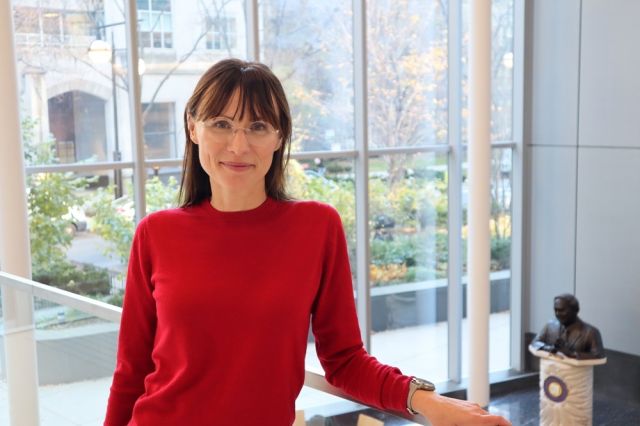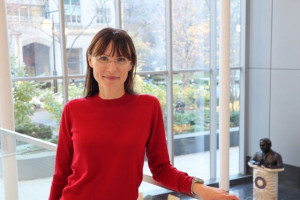Interview with prof. Ewa Szczurek, winner of the Consolidator Grant ERC

07 12 2023
 Interview with prof. Ewa Szczurek from the Faculty of Mathematics, Computer Science and Mechanics of the University of Warsaw, winner of the ERC Consolidator Grant.
Interview with prof. Ewa Szczurek from the Faculty of Mathematics, Computer Science and Mechanics of the University of Warsaw, winner of the ERC Consolidator Grant.
– In my field, male domination begins with the domination of boys. (…) I see the greatest need for institutional support at the level of public awareness and at the stage of early childhood education. It is worth encouraging all children, both girls and boys, to develop their mathematical interests – says prof. Ewa Szczurek from the Faculty of Mathematics, Computer Science and Mechanics of the University of Warsaw.
Prof. Ewa Szczurek is a computer scientist, working at the Faculty of Mathematics, Computer Science and Mechanics at the University of Warsaw. She deals with artificial intelligence and its applications in biology and medicine. She is the winner of three National Science Center grants. In November 2023 , as one of four scientists from Poland, received the ERC Consolidator Grant.
– I am most fascinated by probabilistic graph models and deep generative models. In terms of applications, I have been involved in cancer-related research for many years. Recently, my interests have broadened, including the issue of antimicrobial peptide generation. Thanks to the ERC grant I received, I can fully develop research in this field – explains the researcher.
In a conversation with Anna Korzekwa-Józefowicz, prof. Szczurek talks about her research and activities supporting equal opportunities for women and men in science.
As for models we could adopt, these are university institutions for children. At ETH Zurich in Switzerland, there was a nursery and kindergarten for employees’ children, with several branches in different districts of the city. Similarly, there is a great primary school at the University of Chicago in the USA. Knowing that children are well cared for and receiving a high-quality education while a parent is at work is crucial to the parent’s academic performance. It is also very helpful for universities in attracting those scientists who have families.
The interview in Polish: https://www.ncn.gov.pl/akt…/2023-12-04-wywiad-ewa-szczurek
photo: M. Szczurek
